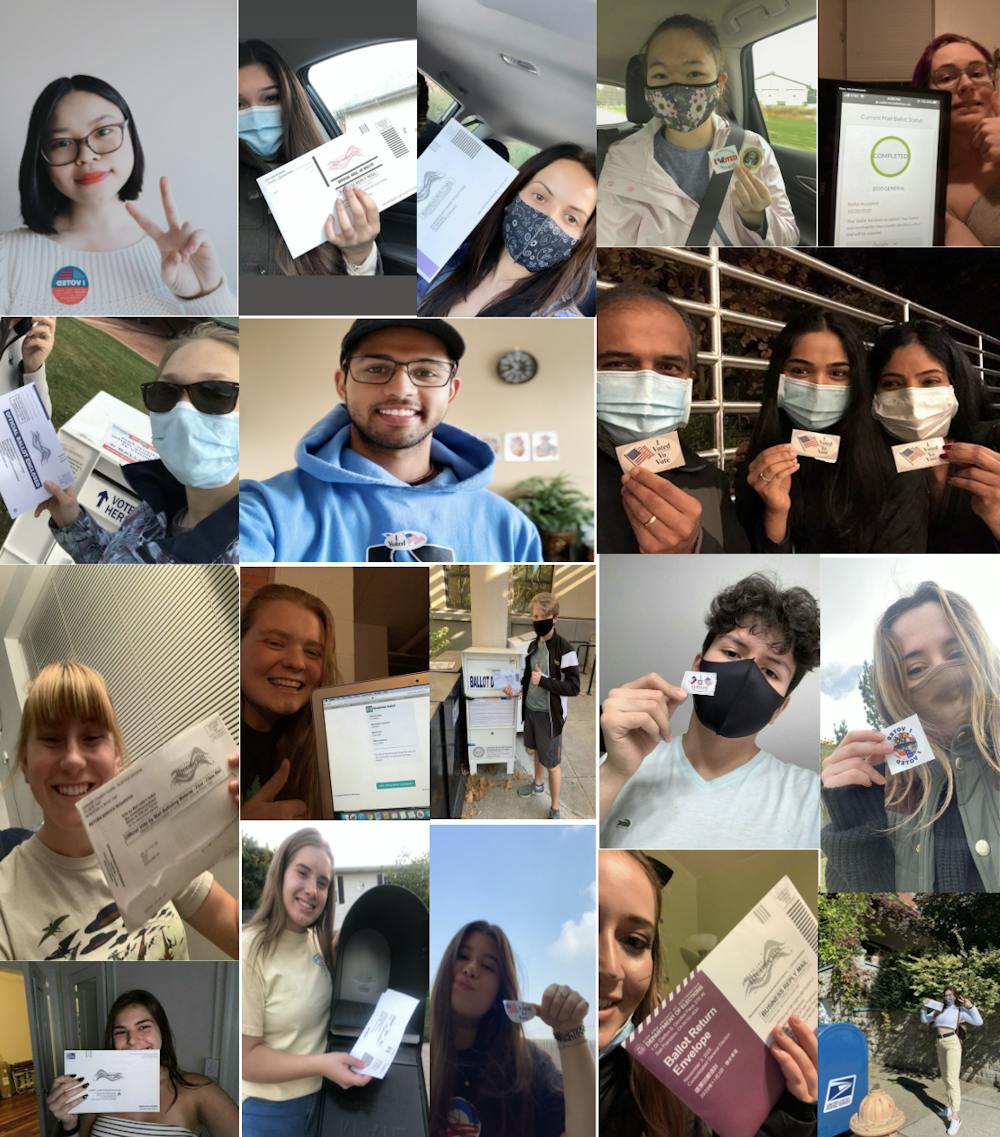To better accommodate students who will be voting in-person on Election Day, University President Ronald J. Daniels announced that no student will be required to attend live classes on Nov. 3 in a University-wide email on Oct. 19. Faculty have been asked to make recordings of their lectures for students who are unable to attend class.
All employees can take up to two hours paid time off to vote, in keeping with long-standing University policy. Hopkins is also providing additional transportation support for student, faculty and staff who will be voting locally in-person.
In his email, Daniels reiterated the University’s support for student civic engagement.
“With fewer polling places, limited voting hours, and the increased demand for mail-in voting access, we must all be more intentional about how, when, and by what means we will vote,” he wrote. “Johns Hopkins is here to support you in that effort.”
Historically, voter participation rate has been low at universities across the country; Hopkins is no exception.
The National Study of Learning, Voting and Engagement published a report in 2018 about college-age voting rates in the 2012 and 2016 general elections. According to the report, in 2016, only 55.8% of eligible Hopkins students voted in the election, which was an increase from 2012 when only 42.5% of eligible students voted. Overall, only half of all eligible college-age voters voted in the 2016 general election.

Student Government Association (SGA) Freshman Class Senator Harvey McGuinness expressed his appreciation for the University's efforts to support student voting.
“The University has been very helpful thus far with promoting civic engagement,” he said.
Various student organizations have worked to ensure that students are aware of how to cast their ballots.
Hopkins Votes, a nonpartisan group in the Center for Social Concern, has acted as a central hub of voter information at Hopkins.
Senior Nihaal Rahman, student organization coordinator of Hopkins Votes, said that the group has helped students know what they need to do in order to be able to vote.
“This year, a lot of our work has been to make sure everybody is registered to vote and help them navigate the process, especially the freshmen,” he said. “We’re also working on social media campaigns and resources for requesting mail-in ballots, tracking ballots and making sure everyone knows the deadlines.”
Hopkins Votes has been using social media to spread important information concerning ballots and deadlines, including filming a video featuring Homewood faculty and a t-shirt giveaway campaign for sharing ballot selfies.
Rahman stated that the group has also been working with Daniels and other University administrators to make voting easier for students.
“We talked with [Daniels] to make Tuesday classes non-mandatory that day. For those in Baltimore, Blue Jay shuttles will take students from campus to the closest local voting locations,” he said.
Hopkins Votes also launched a “Commit to 100%” campaign to help motivate student organizations to help register all of their eligible members.
SGA, for example, partnered with Hopkins Votes to launch a slew of initiatives, including a Voter Guide 101 website.
Senior Class Senator Keidai Lee said that the website would provide a more streamlined voting resource for students.
Lee has also worked on a video project to showcase voting in different countries to stress the importance of voting.
“People around the world talked about how voting works in their countries, including France, Cuba, the former Soviet Union, Taiwan and the United States,” he said. “The point of the video was to show different places and how they vote. Some people don’t have the right to vote. We wanted to say not only the right to vote is special, but also it’s not accessible to everyone here at home.”
Chris H. Park, volunteer coordinator of Hopkins Votes is a News & Features Editor for The News-Letter. He did not contribute reporting, writing or editing to this article.





